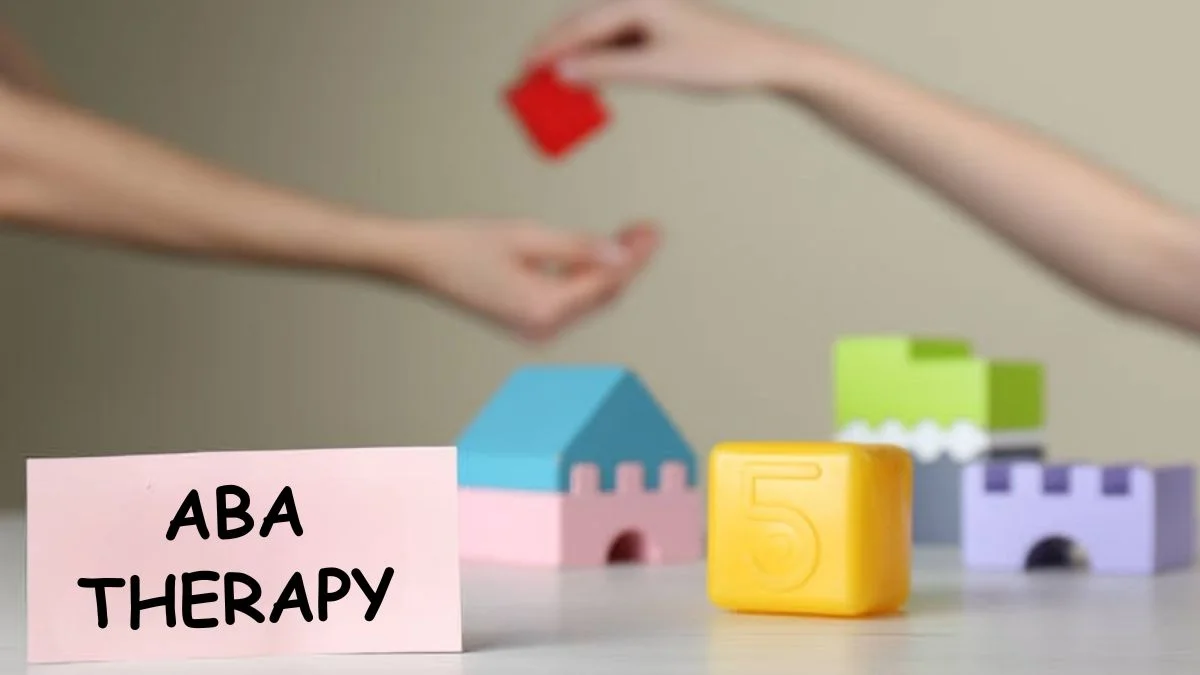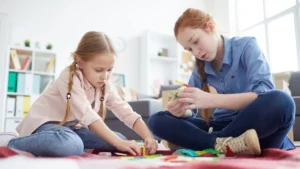GENERAL
The Power of ABA Therapy in Everyday Routines: A Guide to Seamless Learning

Life is filled with routines—from brushing teeth in the morning to sitting down for dinner at night. For children with developmental challenges, these daily tasks can often feel overwhelming or difficult. However, these moments also hold incredible potential for learning and growth. Applied Behavior Analysis (ABA) therapy taps into the power of everyday routines, turning them into opportunities for skill-building and confidence.
This article delves into how ABA therapy integrates seamlessly into daily life, focusing on practical strategies and key techniques to help children thrive. Whether through in-home ABA therapy in Atlanta or customized programs across Georgia, ABA therapy empowers families to foster meaningful progress within the familiar rhythm of their days.
Why Routines Matter in ABA Therapy
Daily routines are consistent and predictable, making them ideal for teaching new skills. From mealtime to playtime, these activities:
- Promote learning opportunities: Routine tasks, such as setting the table, teach children sequencing and cooperation.
- Build confidence: Repeated success in familiar activities boosts self-esteem.
- Encourage independence: Skills like dressing or packing a bag help children gain autonomy.
- Reduce anxiety: Predictable routines provide a sense of structure and security.
For families pursuing ABA therapy in Georgia, integrating therapy goals into everyday routines ensures that children learn in an environment where they feel comfortable and supported.
How ABA Therapy Enhances Routines
- Identifying Teachable Moments ABA therapy begins by identifying routines where learning opportunities naturally arise. For example, during breakfast, children might practice:
- Requesting items like juice or cereal.
- Following a sequence, such as placing a napkin before eating.
- Sharing space or utensils with family members.
- Breaking Down Tasks Everyday activities are simplified into smaller, manageable steps. For instance, brushing teeth may involve:
- Grabbing the toothbrush.
- Squeezing toothpaste onto the bristles.
- Brushing for a specific duration.
- Breaking down these tasks helps children focus on one step at a time, ensuring clarity and success.
- Using Reinforcement Positive reinforcement, such as verbal praise or a small reward, encourages children to complete tasks and builds motivation. A child who successfully zips their jacket might receive a high-five or get to choose their favorite snack.
- Generalizing Skills Skills learned in one context are applied to others. For example, if a child learns to clean up their toys after playtime, they can generalize this skill to putting away books or organizing school supplies.
- Collaborating with Families Therapists work closely with parents and caregivers to ensure therapy techniques are consistent. Families pursuing in-home ABA therapy in Atlanta often find that the natural setting allows for better alignment between therapy sessions and daily routines.
Practical Examples of ABA Therapy in Action
1. Morning Routines
Mornings offer numerous opportunities to build independence and communication skills:
- Encouraging a child to choose their outfit develops decision-making.
- Practicing steps for grooming, like washing hands, enhances fine motor skills.
- Following a visual schedule to get ready for school teachers sequencing.
2. Mealtime
Mealtimes teach essential social and practical skills:
- Using utensils and napkins builds fine motor coordination.
- Taking turns speaking during conversations fosters communication.
- Cleaning up after meals reinforces responsibility.
3. Playtime
Play is a vital part of learning, and ABA therapy integrates fun with skill-building:
- Encouraging turn-taking during games teaches patience and cooperation.
- Building puzzles enhances problem-solving and persistence.
- Playing pretend helps develop imagination and social interaction.

4. Bedtime Routines
Ending the day with consistency promotes calmness and readiness for sleep:
- Reading a bedtime story together strengthens bonds and language skills.
- Practicing tasks like changing into pajamas builds independence.
- Using a visual chart for bedtime steps reduces resistance.
The Role of ABA Therapy in Atlanta and Georgia
Families seeking ABA therapy in Atlanta or ABA therapy in Georgia benefit from programs that adapt to their child’s unique needs and environment. For many, in-home ABA therapy is particularly effective in leveraging everyday routines to achieve therapy goals. In-home sessions allow therapists to:
- Observe the child’s natural behavior within familiar routines.
- Tailor strategies to the specific dynamics of the household.
- Provide hands-on coaching for parents and caregivers.
This personalized approach ensures that progress made in therapy translates directly into the child’s daily life.
Tips for Families to Enhance Routines
Parents and caregivers play an essential role in supporting their child’s growth through routines. Here are some actionable tips:
- Create Visual Schedules: Use charts or picture cards to outline routine tasks. For example, a morning schedule might include pictures of brushing teeth, getting dressed, and eating breakfast.
- Set Realistic Expectations: Focus on one or two tasks at a time to avoid overwhelming your child.
- Celebrate Successes: Acknowledge and reward your child’s efforts, even if progress is small.
- Stay Consistent: Follow the same sequence of activities daily to reinforce learning.
- Collaborate with Therapists: Share insights from routines with your child’s ABA team to ensure strategies are aligned.
Key Benefits of Integrating ABA Therapy Into Routines
The benefits of combining ABA techniques with daily routines are far-reaching:
- Improved Communication: Children learn to express their needs and preferences more effectively.
- Increased Independence: Mastering routine tasks fosters self-sufficiency.
- Stronger Family Bonds: Collaborative activities strengthen relationships and create a supportive home environment.
- Lasting Skill Development: Skills practiced consistently become second nature over time.
How Kids Club ABA Makes a Difference
At Kids Club ABA, we understand that learning happens everywhere—not just in therapy sessions. Our team specializes in integrating therapy goals into daily routines, ensuring that progress is both meaningful and sustainable. Whether through in-home ABA therapy in Georgia or tailored programs in Atlanta, we empower families to make every moment a learning opportunity.
By focusing on practical strategies and individualized plans, Kids Club ABA helps children gain confidence, independence, and social skills. Our collaborative approach ensures that families feel supported every step of the way, creating an environment where children can truly thrive.
Conclusion
ABA therapy’s true power lies in its ability to transform everyday routines into rich learning experiences. From morning rituals to bedtime routines, every moment becomes an opportunity for growth, skill-building, and connection. For families in Atlanta and Georgia, programs like in-home ABA therapy provide a practical, personalized approach to achieving these goals.
With consistency, collaboration, and the right support, children can turn small victories in daily tasks into lifelong achievements. At the heart of ABA therapy is the belief that every child has the potential to succeed—and with the right tools, every routine can become a step toward a brighter future.
Want to learn more? Visit our blog for expert advice and ideas.
-

 BIOGRAPHY9 months ago
BIOGRAPHY9 months agoBehind the Scenes with Sandra Orlow: An Exclusive Interview
-

 HOME1 year ago
HOME1 year agoDiscovering Insights: A Deep Dive into the //vital-mag.net blog
-

 HOME1 year ago
HOME1 year agoSifangds in Action: Real-Life Applications and Success Stories
-

 BIOGRAPHY1 year ago
BIOGRAPHY1 year agoThe Woman Behind the Comedian: Meet Andrew Santino Wife




























